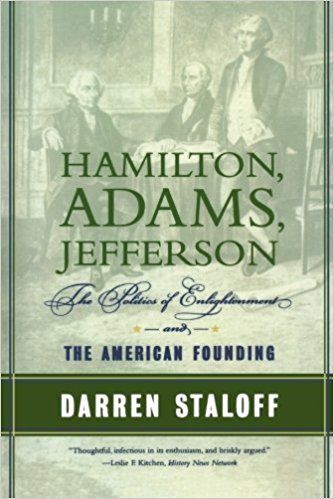
Hamilton, Adams, Jefferson: The Politics of Enlightenment and the American Founding
Darren Staloff
Hill and Wang | 2007
Alexander Hamilton, the worldly New Yorker; John Adams, the curmudgeonly Yankee; Thomas Jefferson, the visionary Virginia squire―each steered their public lives under the guideposts and constraints of Enlightenment principles, and for each their relationship to the politics of Enlightenment was transformed by the struggle for American independence. Repeated humiliation on America’s battlefields banished Hamilton’s youthful idealism, leaving him a fervent disciple of enlightened realpolitik and the nation’s leading exponent of modern statecraft. After ten years in Europe’s diplomatic trenches, Adams’s embrace of the politics of Enlightenment became increasingly that of the gadfly of his country. And Jefferson’s frustrations as a reformer and then Revolutionary governor in Virginia led him to go beyond his previous enlightened worldview and articulate a new and radical Romantic politics of principle.
Hamilton, Adams, Jefferson is a marvelous reminder that the world of ideas is inextricably bound up in the long trajectory of historical events.
Detail, The First Continental Congress, Allyn Cox, 1973-74